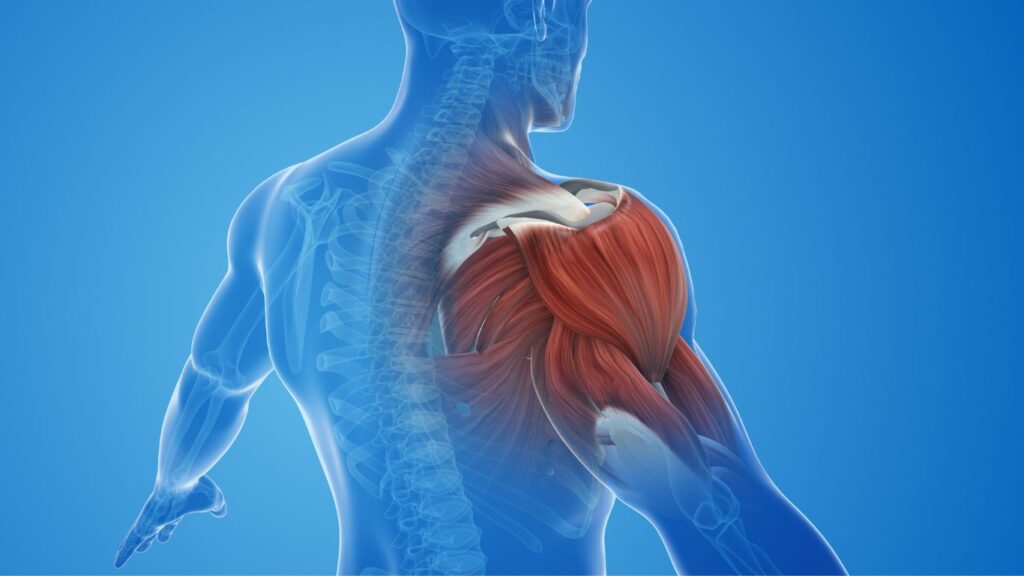In the realm of fitness and bodybuilding, the concept of the “mind-muscle connection” has long been advocated as a key to efficient muscle growth and overall physical development. This connection is not just about focusing on the muscle being worked but also encompasses the broader interaction between mental health and physical fitness. Particularly, stress and anxiety, two prevalent mental health issues, can significantly impede muscle growth, affecting not just athletes but anyone engaged in physical fitness regimes.
The Mind-Muscle Connection: How Stress and Anxiety Impede Muscle Growth
Understanding the Mind-Muscle Connection
The mind-muscle connection is essentially about creating a conscious, focused engagement between the brain and the specific muscles being exercised. This focused engagement helps in executing movements with precision, enhancing muscle activation, and improving workout results. However, this connection can be disrupted by various factors, with stress and anxiety being prominent disruptors.
The Physiology of Stress and Its Impact on Muscle Growth
Stress activates the body’s “fight or flight” response, triggering the release of cortisol, a stress hormone. While cortisol is vital for survival, its chronic elevation can be detrimental to health and fitness goals. Here’s how:
- Cortisol and Protein Synthesis: Elevated cortisol levels interfere with protein synthesis, the process of building new muscle proteins. This interference can lead to muscle breakdown (catabolism) rather than muscle growth (anabolism).
- Impact on Testosterone: Cortisol can negatively impact the levels of testosterone, which is essential for muscle growth. High cortisol levels often mean lower testosterone levels, hindering muscle development.
- Energy Imbalance: Chronic stress can lead to altered eating habits and energy utilization, impacting the energy available for muscle growth and recovery.
Anxiety, Stress’s Close Companion, and Its Effects

Anxiety, often occurring alongside stress, also plays a role in hampering muscle growth:
- Disrupted Sleep Patterns: Anxiety can lead to sleep disturbances. Adequate sleep is crucial for muscle recovery and growth, as most muscle repair occurs during sleep.
- Impaired Workout Performance: High anxiety levels can reduce focus and energy, limiting workout intensity and effectiveness, which are crucial for muscle growth.
- Reduced Recovery Capability: Anxiety can prolong the body’s recovery time, making it harder for muscles to heal and grow after exercise.
- Mindfulness and Meditation: Incorporating mindfulness and meditation into your routine can significantly reduce stress and anxiety levels, thus improving the mind-muscle connection.
- Regular Exercise: While this may seem counterintuitive, regular, moderate exercise can reduce stress hormones and release endorphins, chemicals in the brain that act as natural painkillers and mood elevators.
- Adequate Sleep: Ensuring 7-9 hours of quality sleep can enhance recovery and reduce stress and anxiety levels.
- Balanced Nutrition: A diet rich in antioxidants, omega-3 fatty acids, and lean proteins can help regulate cortisol levels and support muscle recovery and growth.
- Time Management and Leisure Activities: Effective time management can reduce stress, and engaging in leisure activities or hobbies can provide mental relief, aiding in reducing anxiety and stress levels.
Integrating Mental Health Care into Fitness Regimes
Recognizing the interplay between mental and physical health is crucial. Fitness enthusiasts and athletes should consider incorporating mental health strategies into their training regimes. This can include:
- Cognitive Behavioural Therapy (CBT): For those with high levels of stress and anxiety, CBT can be an effective tool in managing these conditions and enhancing the mind-muscle connection.
- Stress Management Training: Learning and applying stress management techniques can help individuals handle stress more effectively, positively impacting their fitness journey.
- Yoga and Relaxation Techniques: Practices like yoga combine physical activity with relaxation techniques, aiding in stress and anxiety reduction.

A supportive environment, including trainers, gyms, and workout groups that understand the importance of mental health, can significantly enhance the mind-muscle connection. Encouragement, positive reinforcement, and an understanding of individual stressors and anxiety triggers can create a more effective and mentally healthy workout environment.
Understanding Individual Differences
It’s crucial to remember that the impact of stress and anxiety on muscle growth can vary from person to person. Genetic predispositions, lifestyle factors, and existing mental health conditions play significant roles in how stress and anxiety affect an individual’s muscle growth and overall fitness.
Case Studies and Research
Several studies and real-life examples highlight the impact of stress and anxiety on muscle growth. Athletes who have managed their stress and anxiety report better performance and muscle development. Conversely, those who have struggled with these issues often report stagnation in their fitness progress.
Conclusion
The journey to muscle growth and overall fitness is not solely a physical one. The mind-muscle connection signifies the deep interconnection between mental health and physical fitness. Stress and anxiety are not just emotional states but are physiological conditions that can significantly impede muscle growth and overall fitness achievements.

By adopting a holistic approach that includes managing stress and anxiety, individuals can create a more effective and sustainable path to fitness. This approach ensures that the journey to physical well-being is not just about the body but also about nurturing the mind, leading to a more balanced and fulfilling fitness journey.
The importance of mental health in physical fitness is an area that deserves more attention and understanding. As we continue to explore and understand this connection, we open up new avenues for achieving our fitness goals while maintaining mental well-being.
Also read: Mental Health and Physical Exercise: A Two-Way Street
